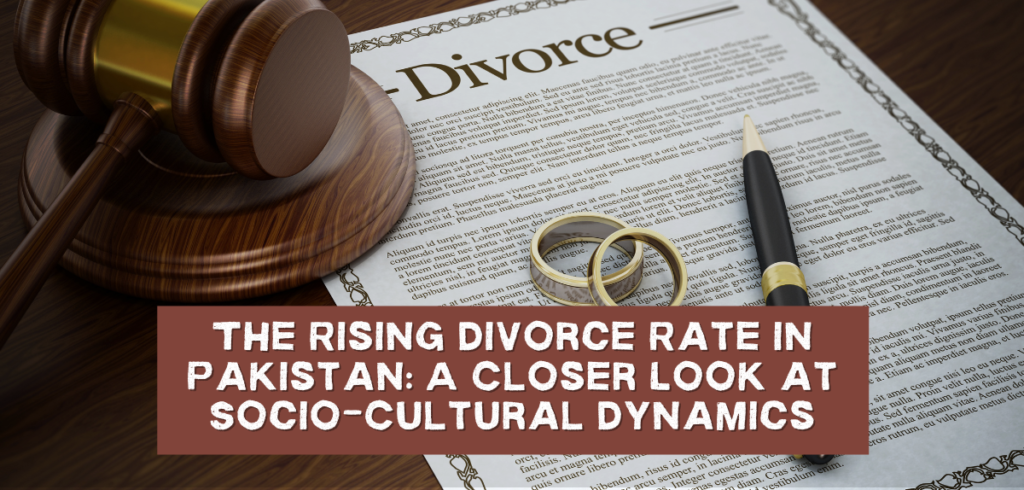Pakistan’s divorce rate has significantly increased in the last few years, raising questions and igniting discussions in a variety of social circles. Questions concerning the underlying reasons and implications of this phenomena, which was long thought to be rare, are being raised as it has grown more common. Examining the intricate fabric of Pakistan’s socio-cultural environment reveals various elements that are responsible for this growing tendency.
Shifting Societal Norms
Pakistan has traditionally been a country with strong patriarchal traditions, where marriage was seen as a lifelong commitment that was frequently arranged by families. But as globalization and exposure to many cultural influences increase, society norms are changing dramatically. The conventional ideas of parental authority and duty are being challenged by younger generations’ growing propensity for individual autonomy and agency in aspects of love and marriage.
Women’s Empowerment and Education
In Pakistan, the dynamics of marriage have changed significantly as a result of women’s education and empowerment. Women become increasingly assertive in defending their rights in married partnerships as they have greater access to economic and educational opportunities. Traditional marriages founded on unequal power dynamics may be strained by the increased expectations for equality, respect, and compatibility that come with this greater empowerment.
Economic Pressures and Financial Independence
Financial demands and economic strains can worsen marital strife, especially in societies where the husband is typically the family’s primary provider. Married couples are more concerned about their financial stability as a result of rising inflation and increased job market competition. The divorce rate is also influenced by the fact that as more women join the employment and become financially independent, they are less likely to stay in abusive or unpleasant marriages.
Changing Attitudes Towards Divorce
In Pakistani society, the stigma attached to divorce is progressively fading as a result of growing consciousness and exposure to other stories. Divorce was formerly frowned upon and shunned by society, but it is increasingly acknowledged as a respectable choice for people caught in abusive or unhealthy relationships. The way that people view divorce is changing, and this pushes people to put their mental health first and look for ways to break free from unhealthy marriages.
Urbanization and Modernization
Pakistani cities are rapidly modernizing and urbanizing, which has sparked societal change and had a significant impact on marriage relations. Urban lifestyles encourage individualism and freedom, which are frequently at conflict with traditional familial ideals. They are defined by increased mobility, exposure to other cultures, and access to technology. As a result, metropolitan couples could find it simpler to defy social expectations and go through with divorces as a way to express their independence.
Interpersonal Conflict and Communication Breakdown
Interpersonal disputes and communication failures, which are made worse by cultural norms that value silence and obedience over candid discussion and compromise, are often the root cause of divorces. Domestic violence, adultery, substance misuse, and personality conflicts are among the problems that frequently fester in quiet until they become unbearable, forcing couples to seek separation as a final resort.
In conclusion, a combination of sociocultural, economic, and legal variables have molded Pakistan’s rising divorce rate, making it a complex phenomena. Even though patriarchal ideas and conventional conventions still hold sway, new perspectives on emotional health, gender equality, and individual autonomy are challenging them. Pakistan has to prioritize the establishment of supportive mechanisms to help people navigating the complications of marital dissolution as it navigates the complexity of modernity and globalization. It also needs to face the reality of shifting marital dynamics. In the end, treating the underlying causes of marital disagreement and advancing stronger relationships throughout Pakistani society require cultivating a culture of empathy, understanding, and respect for one another.

